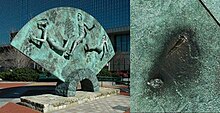Showing posts with label FBI Agent Frank Doyle Jr.. Show all posts
Showing posts with label FBI Agent Frank Doyle Jr.. Show all posts
Officer Dexter
Lieutenant Edwards
Officer Steve Rohwer
Sergeant David Rangel
Lieutenant Steve Bertolozzi
FBI Agent Frank Doyle, Jr. and the Centennial Olympic Park bombing
Pete BennettNovember 27, 2018FBI, FBI Agent Frank Doyle Jr., Pipe Bombs, Terrorism, The Serial Arsonist
No comments


Centennial Olympic Park bombingFrom Wikipedia, the free encyclopediaJump to navigationJump to search
Centennial Olympic Park Bombing
Part of Terrorism in the United States
Bomb fragment mark on Olympic Park sculpture
LocationAtlanta, Georgia, United States
Coordinates33°45′38″N 84°23′33″WCoordinates: 33°45′38″N 84°23′33″W
DateJuly...










